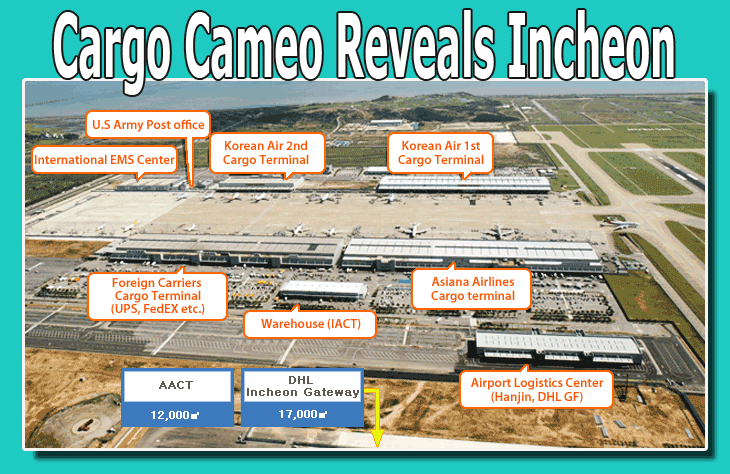
Managers at Incheon’s airport
authority are offering a hearty Korean welcome as the host of the 27th
ACF.
Asked what they hoped to achieve, airport
managers told FlyingTypers:
“We hope to strengthen [Incheon’s]
position as a leading air cargo hub in Northeast Asia.” Expectations
are, indeed, high!
“Incheon Airport, in collaboration
with TIACA, encouraged participation from members of the Korea International
Freight Forwarders Association and Korea Integrated Logistics Association
through sponsorships, face-to-face promotion, and circulation of promotional
material.”
Airport managers have also organized a technical
tour on October 10th consisting of two courses: Incheon International
Airport/Incheon Port and Hyundai Motor Company.
Whether the tour also includes a look at
the airport’s huge new expansion plans was not made clear by the
airport.
On the boards are a second passenger terminal
and an expansion of the Cargo Terminal Area to boost capacity by 1.3 million
tons per annum to 5.8 million tons per annum.
“In addition to the expansion of sheer
size, introduction of state-of-the-art handling equipment will enable
faster and more secure cargo handling,” said the airport.
“We are currently discussing rearrangement
of our terminals and exploring the possibility of future expansion to
the firms that are operating the terminals in order to maximize efficiency
of the six cargo terminals in operation.
“The timing of expansion of cargo
handling capacity will be determined according to the relevant growth
rate of cargo volume at Incheon Airport.”
Of course, Incheon is
a leading world freight airport—even been before it adds further
capacity.
From January to July, air cargo volume on international routes through
the airport stood at 1.46 million tons, a 4.3 percent increase year-on-year.
A number of factors contributed to the steady
increase, including a stronger Korean won compared to the U.S. dollar,
import cargo gains due to the stabilization of crude oil prices, and an
increase in export of IT products such as mobile devices.
“Exports during the 1st half of 2014
were led by products such as semiconductors, mobile phones, auto parts,
and steel products,” reports the airport.
“Auto parts in particular are contributing
to an increase in exports through quality excellence and diversification
of customers.
“It is notable that exports to countries
with competent automobile manufacturers such as Germany and Japan are
also on the rise.
“We expect that export growth will
continue due to the additional reduction of tariffs under the Korea-EU
FTA, and the release of new car models.”
Looking ahead, Incheon expects further expansion
aided by improved traffic with Europe and the Americas and a more general
improvement in the global economy.
“In particular, auto parts, which
led growth in the 1st half of 2014, are expected to continue their strong
growth due to additional tariff reduction under Korea-EU FTA, and the
release of new car models,” the airport reports.
“Traditional peak seasons like those
in the past are hard to come by, yet as evidenced through the Thanksgiving
national holiday in early September, we are seeing an increase of spending
by Korean customers.
“Therefore, we are expecting a slight
increase of cargo volume near the year’s end.”
Sky King |





